Keynotes
Ronald van den Hoff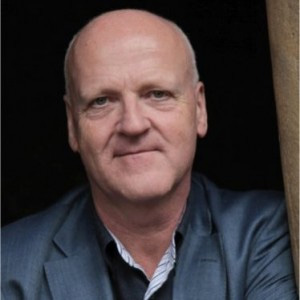
“Roadmap to society 3.0”
Biography:
Ronald is co-founder of CDEF Holding BV, a Holding company with a remarkable range of ventures operating on the disruptive intersection of the Hospitality Industry and the entrepreneurial world of Internet. CDEF incorporates ‘much discussed’, disruptive exponential formulas, like the co-working and meeting centers Seats2meet.com and the Society 3.0 Foundation.
In addition of being a hospitality entrepreneur, Ronald is also an online entrepreneur and enthusiastic Web-trendstrategist. In addition to his work within CDEF Holding BV., he works on innovation with (international) hotel chains and other service companies in the field of E-commerce, E-communication, Business Modeling, Value Networks and Organizational Innovation.
Lucien Hordijk
“The Pharmaceutical Industry: Lending a hand, or forcing yours?”
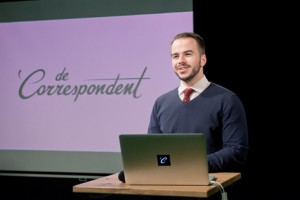
Biography:
Investigative journalist Lucien Hordijk looks into the pricing of innovative drugs in an attempt to find out whether the pharmaceutical industry is coming between doctors and their patients.
mr. Arno Rutte
“Healthcare and research dilemmas in the ageing Western society”
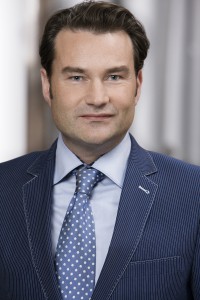
Biography: Arno Rutte is a member of the parliament representing the People’s Party for Freedom and Demogracy. Among his interests are health, welfare and sport. For more information on Arno Rutte please visit his personal webpage.
Prof. Bert Otten
“Creativity in Science”
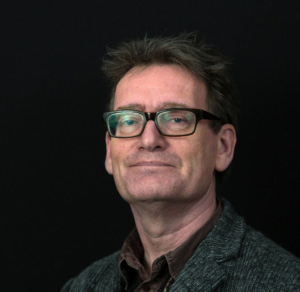 Often scientists are selected on the basis of their critical and systematic thinking. In present day research, these are important capacities, since many original ideas and theories need to be worked out in stable research paradigm. That is the only way to show the power of these theories. In the mean time, creativity as the decisive personal trait, is usually assigned to artists. However, there are important similarities in the way the mental processes work in art and science when innovation is of importance. The neuroscience of creativity will be reviewed, followed by examples of the creative process of discovery.
Often scientists are selected on the basis of their critical and systematic thinking. In present day research, these are important capacities, since many original ideas and theories need to be worked out in stable research paradigm. That is the only way to show the power of these theories. In the mean time, creativity as the decisive personal trait, is usually assigned to artists. However, there are important similarities in the way the mental processes work in art and science when innovation is of importance. The neuroscience of creativity will be reviewed, followed by examples of the creative process of discovery.
Biography:
Professor Bert Otten is an exceptional scientist. In 1982, his PhD thesis was awarded a national award for originality. He is an expert in neuromechanics of human movement but his expertise reaches far beyond that. Joining his passion and scientific knowledge he advices police as gait forensics expert and consults leading Dutch professional cyclists on how to use their bikes. He is a photographer, software developer, inventor and an entrepreneur. Engaging in all those activities takes a great deal of creativity which Bert Otten is known and appreciated for. He sees clues that others don’t and forms new, unexpected and unique insights. During his keynote lecture he will discuss the science behind creativity and give examples of creative process of discovery.
Prof. Henkjan Honing
“What Makes Us Music Animals?”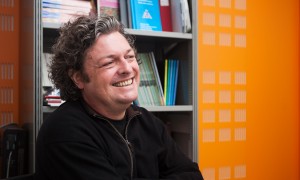
Why do we have music? What is music for, and why does every human culture have it? Is it a uniquely human capability, as language is? Or are some of its core components also present in nonhuman animals? And what biological and cognitive mechanisms are essential for perceiving, appreciating and making music?
The search for a possible answer to these and other questions forms the backgrop of this talk on musicality. Over the years it has become clear that all humans share a predisposition for music, just like we have for language. We all can perceive and enjoy music. This view is supported by a growing body of research from developmental psychology, cognitive biology, neuroscience, and the many contributions from the field of music cognition. These studies indicate that our capacity for music has an intimate relationship with our cognition and underlying biology, which is particularly clear when the focus is on perception rather than production.
Biography:
Henkjan Honing is professor of Music Cognition at both the Faculty of Humanities and the Faculty of Science of the University of Amsterdam (UvA). He conducts his research under the auspices of the Institute for Logic, Language and Computation (ILLC) and the University of Amsterdam’s Brain and Cognition (ABC) center. He is known as a passionate researcher in this new interdisciplinary field that gives us fundamental insight in the cognitive mechanisms underlying musicality. In 2013 he received a Distinguished Lorentz Fellowship, a prize granted by the Lorentz Center for the Sciences and the Netherlands Institute for Advanced Study in the Humanities and Social Sciences (NIAS). This fellowship resulted in several publications, including a theme issues on the cognitive and biological origins of musicality in Philosophical Transactions B (Honing et al., 2015).
www.mcg.uva.nl | www.musiccognition.nl
Workshops
Day 1
How creative writing supports science
Artesc – Lea Zuyderhoudt
We all know that science doesn’t exist without writing. So you need to get your ideas on paper. And like a prose writer you want to be published. But prose writers face an extra challenge. They need to reach the mind of their readers in such a way that they want to keep on reading. And they can’t afford to wait for inspiration. Just like you. What are their secrets? And can you use them in your writing?
In this 1,5 hour workshop you will get to know the basic ideas that make a text communicate.
Biography:
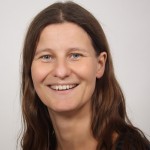 Hi, I ‘m Lea Zuyderhoudt. I am a researcher with a passion for storytelling and academic writing. My goal as an Artesc trainer is to help you share the big and small discoveries that together rock the world of science. It is truly inspiring to see how skills from established authors help participants grow beyond their own expectations.
Hi, I ‘m Lea Zuyderhoudt. I am a researcher with a passion for storytelling and academic writing. My goal as an Artesc trainer is to help you share the big and small discoveries that together rock the world of science. It is truly inspiring to see how skills from established authors help participants grow beyond their own expectations.
Research and teaching is not something I do, it is part of who I am. I have worked in Native American communities for years on how stories and storytelling are part of people’s life. Truckloads of data, film making and working with local storytellers have shaped the life I love. I know both the struggle of writing and the intense joy it can bring. It is more than great to see how a few days of extra practice make all the difference.
International PhDs in Groningen: Integration to Dutch culture and society
prof. Han Moshage (GSMS-International Relations), Marco van der Vinne (International Service Desk), Gabriela Tapia Calle (PhD student) and Xiaoming Zhang (PhD student)
The purpose of this workshop is to inform the participants about the policy and infrastructure of the University with respect to international (PhD) students and to share the experiences of foreign PhD students. Experts of the International Service Desk and the International Classroom will provide a perspective from the University and 2 International PhD students will share their experiences. The introductory lectures of experts and PhD students will be followed by a panel discussion.
Critical thinking
Dr. Maarten Derksen
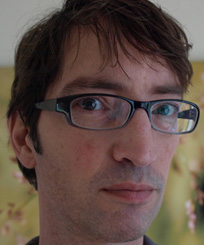 Critical thinking can be defined as the active, persistent, and careful consideration of beliefs or knowledge claims. In this workshop we will discuss the principles of critical thinking and then we will practise some of its strategies and tactics. In the second part, we will focus on critique, which can be defined as examining what makes a belief or claim possible and what its consequences are. Critique is about the relation between knowledge and power. As in the first part, we will discuss the principles of critique and then do some excercises.
Critical thinking can be defined as the active, persistent, and careful consideration of beliefs or knowledge claims. In this workshop we will discuss the principles of critical thinking and then we will practise some of its strategies and tactics. In the second part, we will focus on critique, which can be defined as examining what makes a belief or claim possible and what its consequences are. Critique is about the relation between knowledge and power. As in the first part, we will discuss the principles of critique and then do some excercises.
Biography:
Maarten Derksen is assistent professor Theory & History of Psychology at the University of Groningen. He teaches philosophy of science, history of psychology, and scientifc integrity. His book Histories of Human Engineering: Tact and Technology will be published in July by Cambridge University Press.
How to value science? On journal impact factors and societal relevance of scientific activities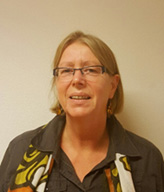
Truus van Ittersum
How is your scientific performance valued compared to that of your peers? Which measurement tools are available? What about the University of Groningen’s position in international rankings? About impact factors for journals, citation scores, Hirsch factors, and the growing emphasis on societal outreach activities and economic spin-offs of scientific work. Bring your device for a hands-on introduction. And be actively involved in a discussion on blogs, publishing for laypersons, or striving for a seat at Matthijs van Nieuwkerk’s table in DWDD.
Funding your academic career after your PhD
Nicolien Wieringa & Charlotte Steenhuis
During this workshop you will explore ways in which you can apply for funding for an academic career after you complete your PhD. You will be guided through the largest personal funding schemes including MSCA Individual Fellowship programmes (H2020), Rubicon (NWO), and EMBO grants. In addition, the Grant Support Hub will explain how they can provide you with personalized support throughout your application process. This workshop is recommended for anyone considering to pursue an academic career after their PhD
Biography Nicolien Wieringa: 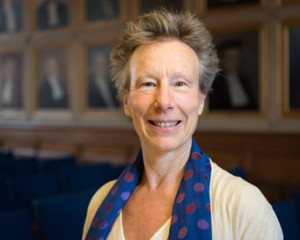 I studied Pharmacy at the University of Groningen and received my PhD in Social Pharmacy & Pharmacoepidemiology also in Groningen. I started to work at the UMCG in 2010 and joined the Research Office in 2013, where I work as science editor and policy advisor. As a member of the Grant Support Hub I assist researchers at the UMCG in finding and applying for national and international grants, and for individual career grants as well as for consortia projects
I studied Pharmacy at the University of Groningen and received my PhD in Social Pharmacy & Pharmacoepidemiology also in Groningen. I started to work at the UMCG in 2010 and joined the Research Office in 2013, where I work as science editor and policy advisor. As a member of the Grant Support Hub I assist researchers at the UMCG in finding and applying for national and international grants, and for individual career grants as well as for consortia projects
For questions regarding funding your research you can contact Charlotte Steenhuis, Communications Officer, Grant Support Hub. c.c.steenhuis@umcg.nl
The Big Rocks in your PhD
RCN Advies & Training; dr. Renée Niessen
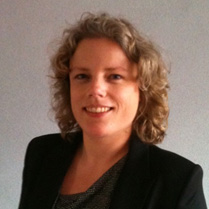 In the first half of the workshop you will be invited to reflect on various aspects of management of your PhD project. Which goals or milestones do you have? Which aspects in your work are essential to achieve these goals? Do you spend your time and energy on the right things? If the answer to this question is no, take action and get back on track.
In the first half of the workshop you will be invited to reflect on various aspects of management of your PhD project. Which goals or milestones do you have? Which aspects in your work are essential to achieve these goals? Do you spend your time and energy on the right things? If the answer to this question is no, take action and get back on track.
In the second half of the workshop you will get tools to work more efficiently. Learn to discriminate between projects and next actions. Declutter your inbox, choose task software that suits your needs. Create overview over your work and achieve more work pleasure and peace of mind.
Day 2
How to print your thesis
Gildeprint
Impact and Visibility for Researchers: Pure, Open Access, Altmetrics and more…
Guus van den Brekel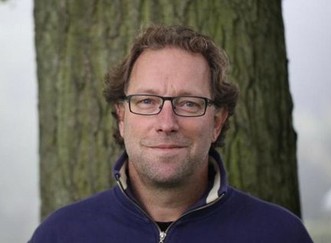
If it’s out there, and you need it somewhere else, in another way, I know how to do it…. or I will find out fast! Medical Information Specialist. The Web, Social & Virtual (Research) Networks for Health and Medicine. Works @cmbUMCG on ‘The Infectious Library’.
Strategy consulting in healthcare (Workshop in Dutch!)
Gupta Strategists
Gupta Strategists is a boutique strategy consultant focused on health care. We are a leading firm, engaged in exciting assignments and growing quickly. Our team is a mix of talented university graduates or PhD’s, and experienced hires from premium consulting firms. At Gupta, you will learn core strategy consulting skills and get hands-on experience very early.
During this workshop we will introduce to our company and projects by an example case. In this case, we will help a Polish health insurer to improve their results.
Biography: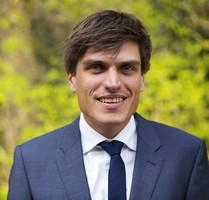
Michiel Oosterwaal and Maartje van den Broek work at Gupta Strategists, a boutique strategy consulting firm focused on health care. Michiel has a background in Biomedical Engineering and Maartje, after graduating Medicine, specialized as a surgeon. They are both PhD’s. During his PhD, Michiel looked at medical problems from a technological perspective. Research gave him a lot of satisfaction but at the same time he found it difficult that the impact of scientific work is often only visible in a long term. Working at Gupta allows him to enjoy the intellectual challenges with the extra reward which is seeing the impact of his work sooner. Michiel and Maartje will introduce the character of their work during this workshop and will let you explore whether strategy consulting could be a career option for you.
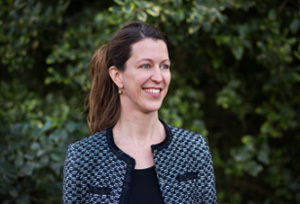 Gupta Strategists is a boutique strategy consultant focused on health care. We are a leading firm, engaged in exciting assignments and growing quickly. Our team is a mix of talented university graduates or PhD’s, and experienced hires from premium consulting firms. At Gupta, you will learn core strategy consulting skills and get hands-on experience very early.
Gupta Strategists is a boutique strategy consultant focused on health care. We are a leading firm, engaged in exciting assignments and growing quickly. Our team is a mix of talented university graduates or PhD’s, and experienced hires from premium consulting firms. At Gupta, you will learn core strategy consulting skills and get hands-on experience very early.
Stress in scientific research: how to prevent a burnout in a competitive academic environment?
Dorothé Vessies, John Wiering, Frederike van Marle
We start with a brief theoretic introduction to (work-)stress, followed by a practical interactive discussion focused on recognizing signals of stress. As a PhD student you are confronted with a very competitive academic environment, while balancing this with your personal life. Our workshop will allow you to better cope with the pressure you are faced with during your PhD.
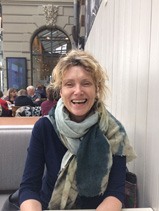
Dorothé Vessies, Psychologist
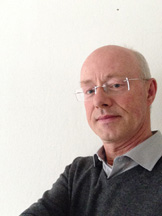
John Wiering, Personal Coach
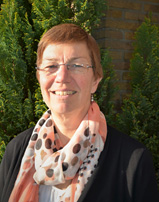
Frederike van Marle, Occupational Social Worker/ Personal Coach
Residential options after your PhD
Margot Rikmanspoel and Christine Sullivan
Immigration experts from Fragomen will discuss residence solutions for you to remain in the Netherlands after you complete your PhD and will also inform you about long-term options to remain in the Netherlands and the European Union.
Biography:
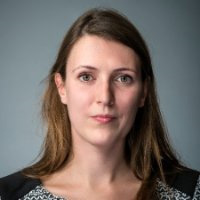
Margot Rikmanspoel
Margot is a Senior Immigration Consultant with the Netherlands inbound team, based in Fragomen’s Brussels office. She is responsible for managing the full scope of immigration related assistance, including case processing on acknowledged sponsorship applications, EU Intra-Corporate Transferee (ICT) permits, knowledge migrants, work permits and long term residency. Margot is a case manager for a wide range of clients, in particular for a number of small and medium-sized enterprises and private clients. She advises private clients on obtaining Dutch citizenship, family reunification and self-employment permits, including start-ups and investor permits.
Margot is also part of Netherlands knowledge team, and is responsible for providing immigration training and performing legal research.
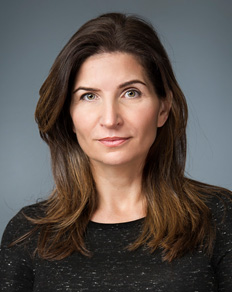
Christine Sullivan
Christine is an Attorney and Manager based in our Brussels office, where she manages a team providing immigration services to private clients in Belgium, the Netherlands, Luxembourg and France. As a member of Fragomen’s Worldwide Private Client Practice, Christine provides tailored immigration guidance and support to high-net-worth individuals for global residency and citizenship options in continental Europe. Christine is active in Fragomen’s EU Government Strategies Practice, and she represents Fragomen in the European Commission Expert Group on attracting innovative entrepreneurs to the EU.
Before joining Fragomen, Christine worked at a boutique immigration law firm in the Netherlands, where she focused on all aspects of Dutch immigration, including the highly skilled migrant scheme, intra-company transfer work permits and permits for self-employed persons. Christine headed that firm’s USA Desk and assisted inbound and outbound American clients with all aspects of migration and corporate questions, particularly American entrepreneurs establishing residency in the Netherlands via the Dutch-American Friendship Treaty.
Intercultural effectiveness training
drs. Michaela Carrière
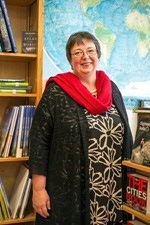 In a globally connected world, an employee’s skill set could see them posted in any number of locations and these employee need to be able to function in whatever environment they find themselves. This requires specific knowledge, such as linguistic skills, but also a more general adaptability to changing circumstances and an ability to sense and respond to new contexts.
In a globally connected world, an employee’s skill set could see them posted in any number of locations and these employee need to be able to function in whatever environment they find themselves. This requires specific knowledge, such as linguistic skills, but also a more general adaptability to changing circumstances and an ability to sense and respond to new contexts.
Intercultural competence has become an important skill for all employees, not just those who have to operate in diverse geographical environments. Organisations increasingly see diversity as a driver of innovation. Research now tells us that what makes a group truly intelligent and innovative is the combination of different ages, skills, disciplines, and working and thinking styles that members bring to the table. This introductory workshop uses an interactive approach to developing a few critical insights into developing Intercultural Competence for a Global World.
Biography:
Drs. Michaela Carrière is project leader and trainer intercultural competence and communication at the University of Groningen. She has been involved in the field of intercultural communication since 1998, and has more than 20 years’ international experience (including extensive experience in India, Indonesia, Burma, Bangladesh, the United States and the Netherlands) and is currently working on her dissertation research on ‘intercultural ethical dilemmas’. Together with her team, she is responsible for the range of training programmes on intercultural competence available via the Language Centre of the UG.
Healthy Ageing Hackathon
HANNN, Gemeente Groningen
In collaboration with the Gemeente Groningen (local government, municipality) and the Healthy Ageing Network North Netherlands (HANNN) we will include a Healthy ageing hackathon on the program of our two-day PhD development conference in the UMCG. The idea was born to involve a few groups of students with daily practice in health(care). Students will need to go out of their comfort zone where they are familiar with as being a researcher, obtained in their ‘daily-bubble’ called UMC(G) or RUG. Given the fact that the biggest part of PhD students will not become a researcher per definition after obtaining their degree.
These sessions will force each PhD student to translate their knowledge into real-life local health(care) affairs, with a very hands-on approach. Participants are challenged to manage the project, so to think about the group-process, (e.g. leadership, decision-making, dividing tasks) and the ability to come to applicable solutions within a limited amount of time while keeping in mind the bigger picture.
Assessment
Improve livability/habitability of a predefined neighborhood, well known as being underperforming areas compared to others. HANNN and Gemeente Groningen will provide background information of two of these areas situated in Groningen (e.g. life-expectancy or inhabitants’ satisfaction but also percentage of green areas, number of flats or the social services available in these neighborhoods). One might think of IT solutions, social improvements, upgrading the livability of the area’s and more. Students are asked to be as creative and innovative as possible, to think outside the box, but also keep in mind the feasibility, costs, managing …
Design
Groups consisting of 5-8 participants will battle against each other for providing the ‘best’ solutions for one of the two given challenge(s). ‘Best’ could be defined in different ways, but is definitely not solely related to the result itself.
During the sessions colleagues from the Gemeente and HANNN are available to guide and answer questions, as well as volunteers to help you out with practical issues.
The best solution will be awarded!! during the drinks on Friday afternoon.
Program
Wednesday at 17h – 18h (Ronde zaal)
Short introduction, briefing and formation of groups (informal setting, incl free drinks and snacks!)
Thursday during (lunch)breaks
Option for gathering and exchange of ideas within groups (in a special hackathon corner)
Friday
Two afternoon sessions are scheduled, 1,5 hour each. The final part of the second session will be reserved for presenting the health(care) solutions on A0 piece of paper (rich picture?!), each group 1 minute + 1 minute discussion.
Parallel lectures
The many roads of an academic career: Pursue your dreams and follow your heart – Prof. Dr. Ingrid Molema; Principal Investigator life sciences – Pharmacology (UMCG)
Connecting the dots – From biology, to health economics, to data science – Dr. Jan Willem Dik
Jan-Willem started out as biology student. He focused on biomedical sciences and spent a half year in the lab making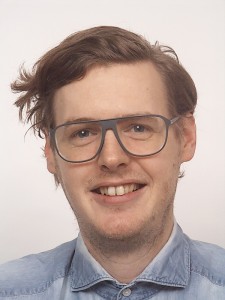 beautiful microscopy pictures of his cell lines. His second year however had nothing to do with pipetting and lab work, but with business and policy. Even though he was looking for a commercial job, he was offered a PhD position in medical microbiology and health economics, two subjects he did not graduate in, but he did not hesitate. Bringing into practice what he learned during his second master year contributing to more cost-efficient healthcare. But also having to bridge four different promotors on multiple specialities. Instead of continuing this path with a post-doc position, he decided to move into a different direction and began working as a data scientist for the National Health Care Institute in Amsterdam. There he continues to work on cost-efficient healthcare, but now on a bigger national scale. He will tell about his experience starting out as a biology student and ending up as data scientist, as well as giving tips and advice how to survive a PhD with multiple supervisors and still finish within four years.
beautiful microscopy pictures of his cell lines. His second year however had nothing to do with pipetting and lab work, but with business and policy. Even though he was looking for a commercial job, he was offered a PhD position in medical microbiology and health economics, two subjects he did not graduate in, but he did not hesitate. Bringing into practice what he learned during his second master year contributing to more cost-efficient healthcare. But also having to bridge four different promotors on multiple specialities. Instead of continuing this path with a post-doc position, he decided to move into a different direction and began working as a data scientist for the National Health Care Institute in Amsterdam. There he continues to work on cost-efficient healthcare, but now on a bigger national scale. He will tell about his experience starting out as a biology student and ending up as data scientist, as well as giving tips and advice how to survive a PhD with multiple supervisors and still finish within four years.
Fluorescent markers, from fundamental research to product development – Prof. dr. Go van Dam; Abdominal surgeon – Oncology (UMCG)
Affordability of health care – Prof. Dr. Erik Buskens
Affordability of health care is about making choices. Choices in times of scarcity. Choices are important on both short term and long term.
Making choices is an open debate; in consultation rooms, the media and in the heads of policy makers. In other words, a patient comes in with a health issue, what treatment will suit him best and is it worth treating? When it comes to innovative treatments and medicine, only shortly before a discussion between doctor and patient a policy maker has discussed whether or not this certain treatment will be reimbursed. The paradigm of Evidence Based Medicine is an important guidance in this matter. Utility and necessity are the background for these kind of choices.
Biography: Professor Erik Buskens is professor of Health Technology Assessment at the UMCG and the Faculty of Economics and Business Administration. He is a medical doctor and epidemiologist. His recent research focussed on strategic positioning and management of the UMCG leitmotif Healthy Ageing. He also recently received grants for “Economic evaluation in child psychiatry and development of generic HTA tool” and “Regional and local disease modelling to inform local policy in public health”.
An unexpected career; A personal story with career and decision making tips
dr. Renée Niessen
Renée Niessen is a productivity trainer and started her own business RCN Advies & Training 4 years ago. However, she was not trained for this profession, as her background is in the medical and laboratory sciences. In this lecture, she will share her personal story of her quest for happiness in work and for the ideal job.
If you are not sure what to do after you get your Ph.D. certificate, or you have some idea, but do not know where to start, attend this lecture for inspiration and encouragement.
Big data; Prepare yourselves for the age of ethical big data research
Dr. Els Maeckelberghe and Drs. Reinder Broekstra
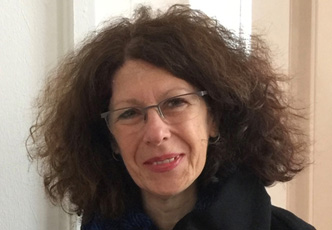 Digital technologies enable researchers to collect an increasing amount of data, and to “merge, link, reuse and exchange data” (Markowetz 2014). Researchers are challenged to reflect on the ever “increasing interconnectivity in data-rich contexts” (Mittelstadt 2015) and the ethical and social challenges it poses to their scientific work. Big Data calls for protective measures as the privacy of individuals could be endangered. The debates around the European Data Protection Regulation, however, showed the fear from the scientific community for a radical restriction of medical research with aggregated datasets. How to be a responsible researcher in light of these developments?
Digital technologies enable researchers to collect an increasing amount of data, and to “merge, link, reuse and exchange data” (Markowetz 2014). Researchers are challenged to reflect on the ever “increasing interconnectivity in data-rich contexts” (Mittelstadt 2015) and the ethical and social challenges it poses to their scientific work. Big Data calls for protective measures as the privacy of individuals could be endangered. The debates around the European Data Protection Regulation, however, showed the fear from the scientific community for a radical restriction of medical research with aggregated datasets. How to be a responsible researcher in light of these developments?
In this lecture, we want to prepare researchers for the Age of Ethical Big Data Research. First, we will start with a VIP (Very Interactive Part) about what Big Data actually is about. It seems to be a fuzzy denominator for everything that involves huge amounts of data. Such a fuzzy concept could lead to fuzzy ethics. The result of the first part is a clear understanding of Big Data in the context of bio-medical research. Second, we will explore the question: “Big Data: Innovative Knowledge versus Threats to Personal Integrity”. Reinder Broekstra will confront the participant with some results of his work on participation in Big Data Research. Third, we will map the ethical debate and we will do an exercise in participatory moral reasoning. Finally, the exercise in participatory moral reasoning will result in a short manifesto on “How to Prepare Yourselves for the Age of Ethical Big Data Research”.
Biography:
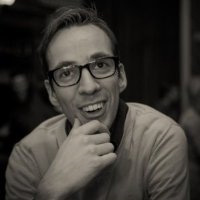 Reinder Broekstra, is a PhD-candidate at the University of Groningen/UMCG. His research focuses on the ethical and psychological dimensions of Big Data. His PhD project explores the perception of Big Data and factors related to participation in Big Data research. He holds a master’s degree in Psychology and has a background in applied research.
Reinder Broekstra, is a PhD-candidate at the University of Groningen/UMCG. His research focuses on the ethical and psychological dimensions of Big Data. His PhD project explores the perception of Big Data and factors related to participation in Big Data research. He holds a master’s degree in Psychology and has a background in applied research.
Dr. Els Maeckelberghe is a senior university lecturer in ethics at the University Medical Center Groningen, University of Groningen, The Netherlands, with a focus on research ethics, scientific integrity (see e.g. www.integrityfactor.nl), and health care ethics. She has extensive teaching experience. Her research projects are about implementing moral knowledge in health care practices and guidelines (pediatric euthanasia, pediatric medical research, big data, technological innovations).

